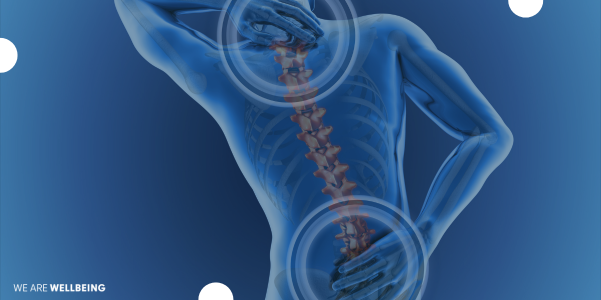The Importance of Hydration
‘I know I don’t drink enough’ and ‘I know I should drink more’ are two common sentences we hear in the workplace! Sound familiar? The 11th – 17th of March marks Nutrition & Hydration Week, and here at We Are Wellbeing, we are focusing on the topic of hydration.
We all know that consuming fluid throughout the day is important, but it can be difficult to put that into practice. Especially throughout the Winter months when the temperature is lower and we may not feel as thirsty.
However adequate hydration is really important for our health and wellbeing, and can make a big difference to how we feel. In this blog we explore why this is the case, how much we really need and some top tips for consistent sipping.
Why is it important?
Hydration is an important part of our diet and helps ensure that our body functions as normal. Some ways in which our body uses water include:
- The regulation of our body temperature through sweating.
- Lubrication of our joints, spinal cord, eyes and other tissues throughout the body.
- Helps to keep our skin healthy and bright.
- Supports a healthy digestive system and bowel movements.
- Supports the breakdown of food and the adsorption and transportation of vitamins and minerals.
- Helps to get rid of waste products from the body.
Staying hydrated can also help to boost our mood, energy levels and can support cognitive function, which is so important at work. Even minor dehydration can have a big impact on how we feel, causing headaches, dizziness, lethargy and poor concentration. So, if you struggle with any of these, it may be worth addressing how much you drink on a daily basis.
How much do we really need?
This will vary depending on you as an individual and your lifestyle. However, 2 litres per day is generally recommended, this is 8-10 glasses per day (200ml – 250ml glass). You may need to increase this if you are regularly exercising, have a manual job, are in a warmer climate or are pregnant or breastfeeding.
The best way to check for dehydration is using the urine colour chart as this can give a good indication of hydration. You can find the chart here, some medications, vitamins and our diet can affect urine colour, so if you have any concerns, please speak to your GP.
Our top tips for staying hydrated
Don’t wait until you are thirsty – Rather than waiting until you feel thirsty, create a routine to sip regularly throughout the day, the below tips can help with this.
It’s not just water – Many people think that our daily intake has to come purely from water, but this isn’t true. Coffee, tea, milk, carbonated drinks, fruit juice and squash all count. Just be careful of the caffeine and sugar content in some of these drinks.
Treat yourself to a new water bottle – Having a water bottle in front of you can provide that much needed prompt, so why not treat yourself. If you prefer a cold drink, get a metal, insulated bottle. Some people find a bottle with a built-in straw helpful. Or maybe a nice design is enough to motivate you!
Set reminders – If you genuinely forget to drink throughout the day, set yourself some reminders. This could be in your phone, or work calendar, and can help to get you into the habit. Alternatively, a sticky note on your desk may work for you. If you like to track things, download a habit-based app, or print out a habit tracking sheet.
Food counts! – We also get hydration from our food, especially if we are including plenty of fruit and vegetables in our diets. Many green vegetables and salads are made up of over 90% water. So that’s one more reason to get your 5 a day.
Support your employees – Hydration can boost productivity, so think of ways to support your employees. This could include providing a water fountain, giving access to a variety of drinks, and sharing this article!
CONCLUSION
In conclusion, hydration is important! Especially as we head into the Spring and Summer months and, hopefully, see temperatures rising. Try setting yourself a small goal initially, such as drinking one extra glass of water a day, or consuming one extra portion of fruit. You can build the amount up over time until you get into a good habit. If you would like We Are Wellbeing to support your employees further with their nutrition and hydration, get in touch.







